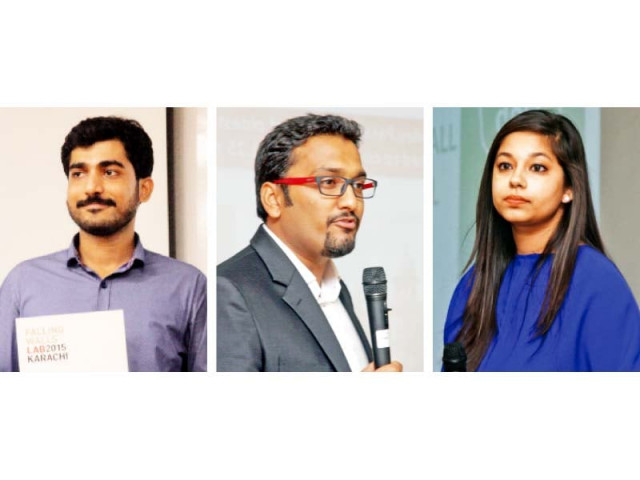Game changers: Young innovators stun crowd with their creativity
Social agents use Falling Walls Labs to present solutions to the problems of the country

Young innovators and social agents stunned the audience and jurists with their creative ideas and inventions for the betterment of the society at Falling Walls Lab, Karachi.
The event was hosted by Habib University on Friday. Thirteen participants, including students, doctors and field practitioners, presented their ideas on a variety of different topics such as arts and culture, medicine and technology. Each presentation lasted for three minutes.
Read: Power of reading : Bringing children, teachers closer to books
"This is the first time the Falling Walls Labs is being held in Pakistan," said Habib University School of Science and Engineering Dean Dr Shoaib Zaidi. "Its objective is to construct and promote interdisciplinary connections between entrepreneurs, professionals and academics hailing from different fields."
Out-of-the-box ideas
Dr Samreen Arif of Dawood University of Engineering presented her idea of making a probe to help with the ultrasounds of pregnant women who are overweight. In Western countries, the problem is curbed by using magnetic resonance imaging but Pakistan does not have similar facilities. "The device can also be used for men during renal introspection," she added.
A system archiving the degenerating artifacts of the country was presented by Dr Waqar Saleem of Habib University. Saleem explained how three-dimensional (3D) scanning of the artifacts can contribute to their preservation. "A 3D scan can capture the image and an internet archive can be made," he claimed. "It can also identify the cracks within the structure that may not be visible to the naked eye."
Read: Pakistani entrepreneurs launch 'Uber for rickshaws'
Danyal Sandeelo, Fast University student, presented on forming a system of context aware text mining that can be used to foster data scrapping. He has created a software with a built in algorithm that determines the relevance of information extracted from search engines online.
The obstacle towards college counseling was highlighted by Taleha Aftab of Counselling Pakistan. She talked about her project to launch a career-counseling website for students, looking for opportunities both abroad and on the local level.
Sandeelo was awarded the first position and received a scholarship to Berlin where he will present his idea in front of an international jury of academic, business and social leaders. Saleem secured the second position and Aftab was awarded the third position.
Falling Labs initiative
An initative of the Falling Walls Foundation, Germany, the Falling Walls Lab Karachi is an inspiring and innovative forum for participants to engage with fellow entrepreneurs, academics, and professionals, learn about innovative research and ideas, and connect to business, scientific and entrepreneurial networks.
Read: Exhibition: Artwork from remote areas showcased
Falling Walls Labs take place globally throughout the year, fostering scientific and entrepreneurial innovations and promoting exchange between young scholars and professionals from different fields of expertise.
The winners of the international Falling Walls Labs qualify for the Falling Walls Lab Finale in Berlin, which is held every year on November 9, to symbolise the fall of wall in Berlin.
Published in The Express Tribune, October 18th, 2015.


















COMMENTS
Comments are moderated and generally will be posted if they are on-topic and not abusive.
For more information, please see our Comments FAQ